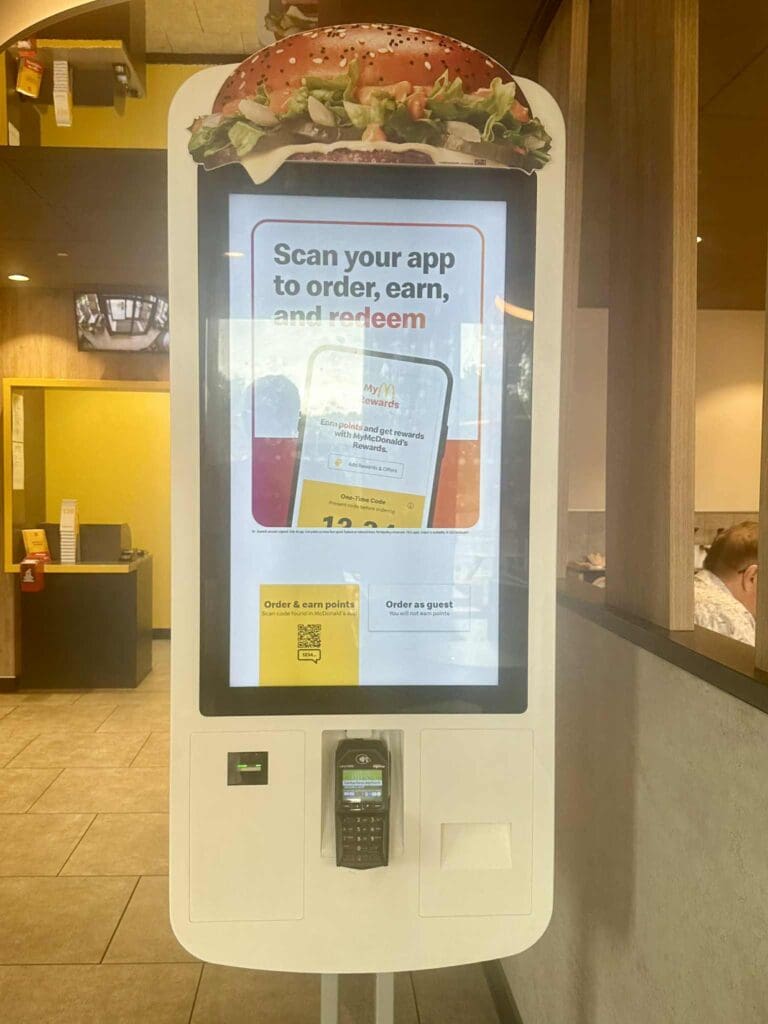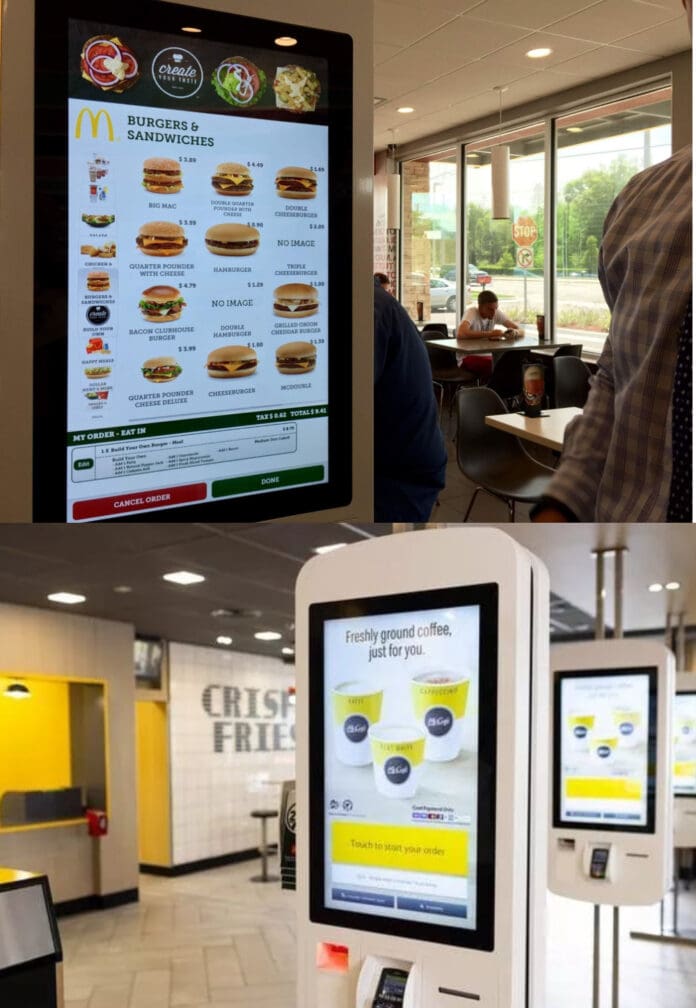Until this week I hadn’t been into a fast food restaurant for about ten years. I must admit to being quite surprised upon entering the local premises of a well-known chain by how much they’ve really changed in terms of layout and service.
I was struck by the fact that you are no longer greeted by the bright smiles of assistants eager to take your order. (It was usually a teenager earning some extra money wearing a star-studded baseball cap.) Instead, you’re faced with a bank of screens, a sea of digital faces staring back at you. The automation of ordering food and drinks has become the new norm, and it’s hard not to feel a sense of unease about what this says about our society.
On the one hand, the efficiency of self-service is undeniable. No more long waits in line for a harried cashier to ring up your order, no more miscommunication about sauce or toppings. You input your preferences with precision, pay with a tap, and collect your food without ever having to interact with another human being. It’s a streamlined process that gets you your food quickly and with minimal fuss.

But is this really progress? For those of us who still value human interaction, the experience feels cold and impersonal. The screens may be efficient, but they’re also isolating. You’re left to navigate a digital menu, with no friendly voice to ask for recommendations or clarify doubts. The whole experience feels like a reflection of our increasingly isolated lives, where many have become more comfortable interacting with devices such as smartphones than with each other.
Of course, there are those who might argue that this is a blessing in disguise. The misanthrope, for instance, might rejoice in the idea of avoiding human contact altogether. But for the rest of us, the loss of human interaction is perhaps a sad indictment of the times in which we live.
There’s something to be said for the personal touch, the human element that comes with interacting with another person. A smile, a joke, a moment of small talk—these are the things that can make our lives richer, more meaningful. However, as we increasingly rely on technology to handle our interactions, we’re losing these moments, one screen at a time.
The automation of ordering fast food may be efficient, but it’s also a reminder of a growing discomfort with human interaction. As we gaze into the self-service portals, we’re not just ordering burgers and fries; we’re participating in a broader cultural shift, one that values convenience over connection, that replaces teens with screens. I wonder if this is a trade-off that’s gone too far.







